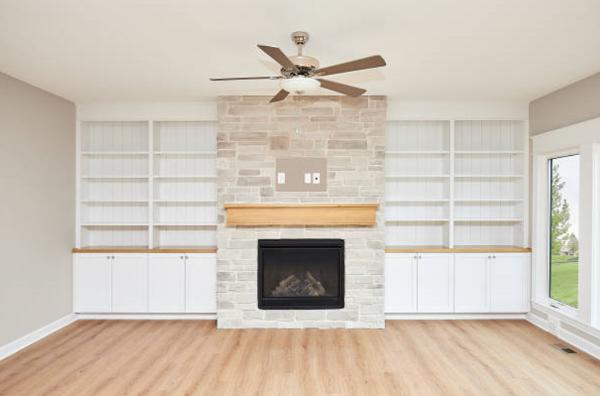Choosing the right flooring for rooms with high humidity levels is a critical decision, particularly in spaces like bathrooms, kitchens, or basements where moisture is prevalent. Laminate and vinyl are two popular flooring options, each with its own set of characteristics. In this guide, we’ll explore the features, advantages, and considerations of laminate and vinyl flooring to help you make an informed decision for rooms prone to high humidity.
Laminate Flooring
Laminate flooring is a synthetic product designed to mimic the appearance of natural wood, which can be purchased on the website https://radixflooring.com/product-category/laminate/. It consists of multiple layers, including a high-resolution photograph of wood grain, a core layer for stability, and a protective top layer.
Advantages of Laminate in High Humidity Rooms:
- Moisture Resistance: Laminate flooring is resistant to moisture to some extent. High-quality laminates often feature water-resistant properties, making them suitable for rooms with occasional humidity.
- Cost-Effective: Laminate is generally more budget-friendly than some alternative flooring options, making it an attractive choice for those looking for an affordable solution.
- Easy Installation: Laminate flooring is known for its easy installation, often utilizing a click-and-lock system that allows for a straightforward DIY installation process.
Considerations for Laminate in High Humidity Rooms:
- Water Resistance Limitations: While many laminates are water-resistant, they are not entirely waterproof. Prolonged exposure to standing water or high humidity levels may still lead to damage over time.
- Joint Sealing: Proper sealing of joints during installation is crucial to enhance the moisture resistance of laminate flooring in high humidity areas.
Vinyl Flooring
Vinyl flooring, also known as resilient flooring, is a versatile and synthetic material available in various forms, including luxury vinyl plank (LVP) and luxury vinyl tile (LVT). It is designed to replicate the look of natural materials like wood or stone.
Advantages of Vinyl in High Humidity Rooms:
- Waterproof Properties: One of the significant advantages of vinyl is its waterproof nature. Vinyl flooring is highly resistant to water, making it suitable for environments with high humidity and potential water exposure.
- Durability: Vinyl is known for its durability and ability to withstand moisture without warping, swelling, or cracking.
- Comfort Underfoot: Vinyl flooring provides a softer and warmer feel underfoot compared to laminate, enhancing comfort in living spaces.
Considerations for Vinyl in High Humidity Rooms:
- Cost: While vinyl flooring offers excellent features, high-quality waterproof vinyl may be more expensive than some laminate options.
- Installation: Professional installation is recommended for certain vinyl types, ensuring proper sealing and adhesion for maximum moisture resistance.

Conclusion
In the debate between laminate and vinyl for rooms with high humidity, the choice depends on various factors including budget, preferences, and the specific conditions of the space. If you are looking for a cost-effective solution with some moisture resistance, laminate may be suitable. However, for superior waterproof properties and durability in high humidity environments, vinyl emerges as the preferred choice.
When making your decision, consider the specific needs of the room, the flooring’s water resistance level, and your long-term expectations. Both laminate and vinyl offer stylish options for humid spaces, and with proper care and maintenance, they can provide lasting beauty and functionality in rooms prone to moisture.































